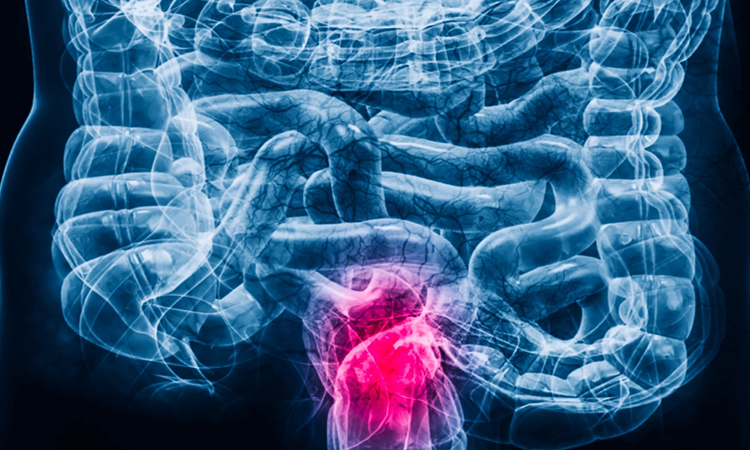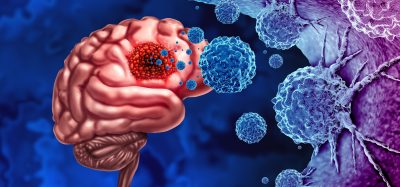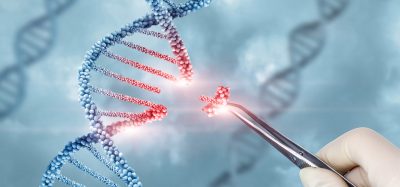Therapeutic approach prevents resistance to chemo in colon and rectal cancer
Posted: 31 March 2023 | Izzy Wood (Drug Target Review) | No comments yet
Scientist and doctors from Spain have uncovered that oxaliplatin, a chemotherapy drug used to treat colon and rectal cancer, avoids the side effects this treatment can have on normal tumour cells, including potential chemotherapy resistance


A multidisciplinary team made up of doctors and scientists from the Hospital del Mar Medical Research Institute (IMIM-Hospital del Mar) and the Institute for Research in Biomedicine (IRB Barcelona), Spain, have led a study, which proposes a therapeutic approach for preventing the development of resistance to chemotherapy with oxaliplatin, one of the standard treatments for colon and rectal cancer.
In a previous study, published in Nature Communications, this group of researchers had already shown how this type of chemotherapy accumulates in the healthy cells (the fibroblasts) surrounding the tumour. This causes the activation of a number of genes linked to poor treatment response and tumour progression, which stimulates the tumour environment and helps tumour cells that have survived chemotherapy to proliferate once again.
To prevent this, the new study, published in Journal of Medicinal Chemistry, proposed adding a cell-penetrating peptide to oxaliplatin.
“Converting a systemic treatment, which affects healthy organs and the tumour microenvironment, by adding this peptide, allows us to transform it into something more specific, a targeted therapy, taking us closer to personalised medicine”, explained Dr Alexandre Calon, a researcher at the IMIM-Hospital del Mar and co-leader of the study.
The conclusions were based on the analysis of tumour samples from nearly 200 colon and rectal cancer patients. In addition, ex vivo samples of tumours from mice and patients were analysed to show that adding a specific peptide to oxaliplatin reduced the adverse effects of this chemotherapy drug on normal tumour cells and could therefore reduce resistance to this treatment. The results indicated that platinum accumulation in the tumour microenvironment in mice treated with this new approach drops dramatically and is up to 3.5 times lower.
“We have seen that the chemotherapy load is reduced in fibroblasts treated with the new compound compared to those treated with oxaliplatin. This reduces the possibility of inducing tumour cell treatment resistance”, said Calon.
It is therefore important to bear in mind that “Cancer does not just involve tumour cells, but there is also a microenvironment made up of blood vessels, fibroblasts and immune system cells, which are there to structure the tumour”.
The researchers also determined that the new drug not only accumulates less around the tumour in mice, but also in the organs that are normally most heavily affected by chemotherapy, such as the colon itself, the kidneys and the liver. In this sense, as Dr Jenniffer Linares, a researcher in the same group and first author of the study, described “The classic treatment has a series of side effects on the patient, which we think could be reduced with the new drug, as less platinum accumulates in healthy tissues.”
“This study is a crucial first step for the future clinical development of treatments that cause fewer side effects and are more effective in patients with colon and rectal cancer, taking into consideration the fact that the normal cells involved in tumours play a key role in treatment efficacy”, explains Dr Clara Montagut, head of the gastrointestinal tumour unit at the Hospital del Mar.
These findings prompted Dr Daniele Lo Re, who co-led the study, to observe that “From this point on, we can think about integrating this approach into drug discovery processes, using appropriate cellular models that allow us to validate a greater number of potential new drugs both in the tumour and in its microenvironment.”
Related topics
Chemotherapy, Drug Discovery, Drug Discovery Processes, Drug Repurposing, Peptide Therapeutics, Targets, Therapeutics
Related conditions
Colon cancer, Rectal Cancer
Related organisations
Hospital del Mar Medical Research Institute (IMIM-Hospital del Mar)Remove term: the Institute for Research in Biomedicine (IRB Barcelona), the Institute for Research in Biomedicine (IRB Barcelona)
Related people
Dr Alexandre Calon, Dr Clara Montagut, Dr Daniele Lo Re, Dr Jenniffer Linares








